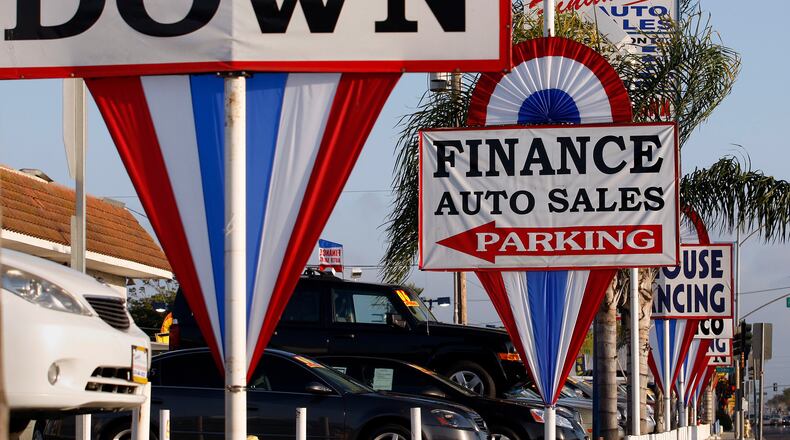The Georgia Senate backed legislation Friday that would increase taxes for many used-car buyers but lower them for Georgians who lease cars.
House Bill 340, sponsored by state Rep. Shaw Blackmon, R-Bonaire, was aimed at addressing problems created by a 2012 law that changed how cars are taxed in Georgia.
That law started the phaseout of the annual property tax on cars, replacing it with a one-time fee when Georgians buy a new or used car.
However, some of the changes lawmakers wanted to make in HB 340 produced a battle between the lobbies of new-car and used-car dealers.
Under HB 340, used-cars buyers would be charged the 7 percent motor vehicles tax on the sales price of the car or truck sold by a dealer.
Currently, new cars are taxed based on that formula, whereas used cars are taxed at the typically lower book value.
So, if somebody buys a used car for $10,000 and owes the 7 percent tax, but the state book value on the vehicle is $8,000, that person pays the taxes on the $8,000, not on what he or she paid for it. The difference in taxes would be $140 in that scenario.
The tax rate is currently lower for Georgians — often with bad credit — who buy from used-car dealers who extend them credit. Their taxes are based on the lower book value of the car. That wouldn’t change under the current version of HB 340.
State estimates say that by fiscal 2019 — the first full year the law would be in effect — the proposed changes in how used cars are taxed could mean an extra $237 million in title fee payments. That could rise to $268 million by 2022. Those numbers may have changed as the bill has moved through the legislative process.
Another part of the legislation would lower the bill on the same tax to those who lease cars, cutting their tab by up to $74 million in 2019, a number that could grow to $106 million by 2022.
Dealers said the higher taxes on leased cars instituted in the 2012 law damaged the car leasing business, and they hope the changes made in HB 340 will help fix the problem.
The Senate approved the measure 49-5, and the vote sets up negotiations with the House over changes the chamber made in the original bill.
Senate Finance Chairman Chuck Hufstetler, R-Rome, praised the proposal.
“The concept is you’re going to actually pay tax on what you pay for, like every other thing in the state of Georgia,” he said.
State Sen. Vincent Fort, D-Atlanta, said the measure targets working-class Georgians who are more likely to buy used cars than to lease vehicles.
Hufstetler had said the bill was “revenue-neutral” because the higher taxes for used-car buyers were offset by lower taxes for those who lease and others, such as people moving into the state who have to title their cars in Georgia.
“The combination of this passing preys on used-car buyers and decreases taxes on people who lease, making it revenue-neutral, except if you’re the one paying the tax increase,” Fort said.
But state Sen. Emanuel Jones, D-Ellenwood, said the bill provides businesses an incentive to lease cars.
“By having an opportunity to change the law, we now put leasing on equal footing with regular retail and any other way that we sell automobiles in the state,” he said.
Jones is the president of Legacy Automotive of Columbus. He told The Atlanta Journal-Constitution that he did not feel it was a conflict of interest to support the bill because he wouldn’t personally benefit from it, even though he owns car dealerships and the measure was strongly backed by the Georgia Automobile Dealers Association, the lobby group for new-car dealers.
Jones serves on the association’s board of directors.
He said the bill “ is not about any money that accrues in any way to my dealership.”
“This bill increases the tax on used cars. About half of the cars that I sell are used cars,” he added. “My customers who buy those cars would pay more. My customers that lease cars would pay less.”
Legislative session coverage
The Atlanta Journal-Constitution has the largest team covering the Georgia Legislature. To see more of its legislative coverage, go to http://www.myajc.com/georgia-legislature/. To track particular bills and resolutions, check out the Georgia Legislative Navigator at http://legislativenavigator.myajc.com/. You can also follow the proceedings on Twitter at http://twitter.com/GAPoliticsNews or on Facebook at http://facebook.com/gapoliticsnewsnow.
Subscribe to our newsletter for more news about Georgia politics. Subscribe to politics news alerts in the AJC news app.
Keep Reading
The Latest
Featured





